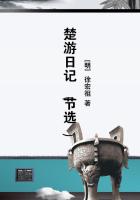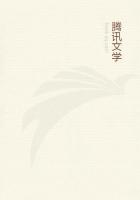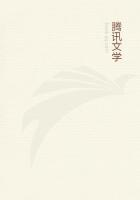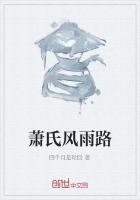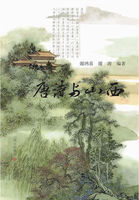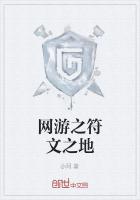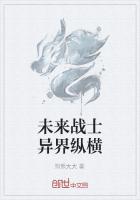Alexander Ivanovich Volgin, a bachelor and a clerk in a Moscow bank at a salary of eight thousand roubles a year, a man much respected in his own set, was staying in a country-house. His host was a wealthy landowner, owning some twenty-five hundred acres, and had married his guest's cousin. Volgin, tired after an evening spent in playing vint* for small stakes with [* A game of cards similar to auction bridge.] members of the family, went to his room and placed his watch, silver cigarette-case, pocket-book, big leather purse, and pocket-brush and comb on a small table covered with a white cloth, and then, taking off his coat, waistcoat, shirt, trousers, and underclothes, his silk socks and English boots, put on his nightshirt and dressing-gown. His watch pointed to midnight. Volgin smoked a cigarette, lay on his face for about five minutes reviewing the day's impressions; then, blowing out his candle, he turned over on his side and fell asleep about one o'clock, in spite of a good deal of rest-lessness. Awaking next morning at eight he put on his slippers and dressing-gown, and rang the bell.
The old butler, Stephen, the father of a family and the grandfather of six grandchildren, who had served in that house for thirty years, entered the room hurriedly, with bent legs, carry-ing in the newly blackened boots which Volgin had taken off the night before, a well-brushed suit, and a clean shirt. The guest thanked him, and then asked what the weather was like (the blinds were drawn so that the sun should not prevent any one from sleeping till eleven o'clock if he were so inclined), and whether his hosts had slept well.
He glanced at his watch--it was still early--and began to wash and dress. His water was ready, and everything on the washing-stand and dressing-table was ready for use and properly laid out--his soap, his tooth and hair brushes, his nail scissors and files. He washed his hands and face in a leisurely fashion, cleaned and manicured his nails, pushed back the skin with the towel, and sponged his stout white body from head to foot.
Then he began to brush his hair. Standing in front of the mirror, he first brushed his curly beard, which was beginning to turn grey, with two English brushes, parting it down the middle.
Then he combed his hair, which was already show-ing signs of getting thin, with a large tortoise-shell comb. Putting on his underlinen, his socks, his boots, his trousers--which were held up by elegant braces--and his waistcoat, he sat down coatless in an easy chair to rest after dressing, lit a cigarette, and began to think where he should go for a walk that morning--to the park or to Lit-tleports (what a funny name for a wood!). He thought he would go to Littleports. Then he must answer Simon Nicholaevich's letter; but there was time enough for that. Getting up with an air of resolution, he took out his watch. It was already five minutes to nine. He put his watch into his waistcoat pocket, and his purse--with all that was left of the hundred and eighty roubles he had taken for his journey, and for the incidental expenses of his fortnight's stay with his cousin--and then he placed into his trouser pocket his cigarette-case and electric cigarette-lighter, and two clean handkerchiefs into his coat pockets, and went out of the room, leaving as usual the mess and confusion which he had made to be cleared up by Stephen, an old man of over fifty. Stephen expected Volgin to "remunerate" him, as he said, being so accustomed to the work that he did not feel the slightest repugnance for it.
Glancing at a mirror, and feeling satisfied with his appearance, Volgin went into the dining-room.
There, thanks to the efforts of the housekeeper, the footman, and under-butler--the latter had risen at dawn in order to run home to sharpen his son's scythe--breakfast was ready. On a spot-less white cloth stood a boiling, shiny, silver samovar (at least it looked like silver), a coffee-pot, hot milk, cream, butter, and all sorts of fancy white bread and biscuits. The only persons at table were the second son of the house, his tutor (a student), and the secretary. The host, who was an active member of the Zemstvo and a great farmer, had already left the house, having gone at eight o'clock to attend to his work. Volgin, while drinking his coffee, talked to the student and the secretary about the weather, and yester-day's vint, and discussed Theodorite's peculiar be-haviour the night before, as he had been very rude to his father without the slightest cause.
Theodorite was the grown-up son of the house, and a ne'er-do-well. His name was Theodore, but some one had once called him Theodorite either as a joke or to tease him; and, as it seemed funny, the name stuck to him, although his doings were no longer in the least amusing. So it was now. He had been to the university, but left it in his second year, and joined a regiment of horse guards; but he gave that up also, and was now living in the country, doing nothing, finding fault, and feeling discontented with everything. Theo-dorite was still in bed: so were the other members of the household--Anna Mikhailovna, its mis-tress; her sister, the widow of a general; and a landscape painter who lived with the family.
Volgin took his panama hat from the hall table (it had cost twenty roubles) and his cane with its carved ivory handle, and went out. Crossing the veranda, gay with flowers, he walked through the flower garden, in the centre of which was a raised round bed, with rings of red, white, and blue flowers, and the initials of the mistress of the house done in carpet bedding in the centre.

